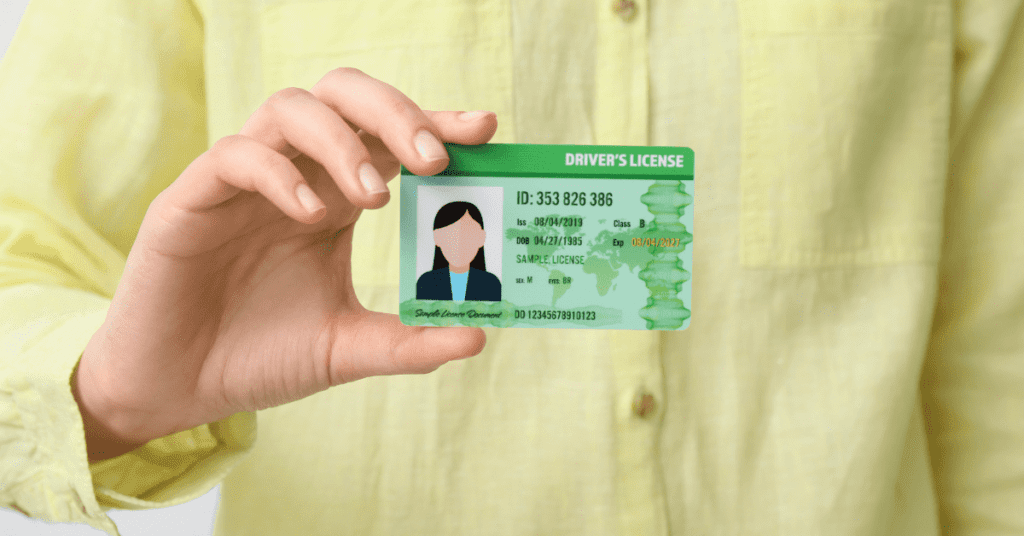What Happens If You Get Caught Driving Without A License In Texas?

Driving is a privilege that comes with great responsibility, and one of the fundamental requirements for operating a motor vehicle on public roads is holding a valid driver’s license. However, despite the legal and safety implications, some individuals may be tempted to drive without a license in Texas, either due to oversight or willful disregard for the law. In this blog, we will delve into the significant consequences of getting caught driving without a license in the Lone Star State.
Texas, like all states, has stringent laws in place to ensure the safety of its road users, and driving without a valid license is a serious offense. The consequences of such an act can be far-reaching, affecting not only the individual’s legal standing but also their financial well-being and future opportunities. It is crucial for all drivers to be aware of the legal ramifications of driving without a license and the potential impact on their lives.
In the following sections, we will outline the specific legal penalties for driving without a license in Texas, including citations, fines, and the suspension of driving privileges. We will also explore the potential criminal charges and jail time associated with this offense, highlighting both misdemeanor and felony scenarios. Beyond the immediate legal consequences, we will discuss the long-term effects, such as increased insurance premiums and the impact on one’s driving record.
What Happens If You Get Caught Driving Without A License In Texas?
Driving without a valid license is a serious offense in Texas and can lead to severe legal consequences and long-term repercussions. It is crucial for all drivers to understand the gravity of this violation and the potential impact on their lives. Here are the legal penalties, potential criminal charges, and other consequences of getting caught driving without a license in the Lone Star State.
1. Legal Penalties and Fines
Driving without a license is a violation of Texas traffic laws, and the state enforces strict penalties for such offenses. If caught driving without a valid license, you could face citations and fines, which can significantly impact your finances.
a. Citations and Tickets
Law enforcement officers may issue citations or traffic tickets when they catch a driver without a valid license. These citations serve as official records of the offense and must be addressed appropriately.
b. Monetary Fines
The fines for driving without a license can vary depending on the circumstances and whether it’s a first-time offense or a repeat violation. The fines can range from hundreds to thousands of dollars, potentially placing a substantial financial burden on the driver.
2. Suspension of Driving Privileges
In addition to citations and fines, driving without a license can lead to the suspension of your driving privileges. The Texas Department of Public Safety (DPS) has the authority to suspend your license, making it illegal for you to operate a motor vehicle for a specified period.
a. Length of Suspension
The length of the license suspension can vary based on factors such as prior offenses and the seriousness of the current violation. It is crucial to adhere to the suspension period, as driving with a suspended license can lead to even more severe penalties.
b. License Reinstatement
To reinstate your driving privileges after a suspension, you may need to pay additional fees and fulfill certain requirements mandated by the DPS. This process can be time-consuming and may involve taking driver education courses.
3. Potential Criminal Charges
Driving without a license is generally considered a misdemeanor offense in Texas. However, certain aggravating factors can elevate the offense to a more serious charge, leading to potential criminal consequences.
a. Misdemeanor Offense
For a first-time offense of driving without a license, you could face misdemeanor charges. This may result in probation, community service, or other penalties determined by the court.
b. Felony Charges
In some cases, driving without a license can lead to felony charges, especially if the act resulted in an accident causing injuries or fatalities. Felony convictions can have severe and lasting consequences on one’s life and future opportunities.
4. Long-Term Consequences and Impact
Beyond the immediate legal penalties, getting caught driving without a license can have lasting repercussions that affect various aspects of your life.
a. Increased Insurance Premiums
A conviction for driving without a license can lead to higher car insurance premiums. Insurance companies view this offense as a risk factor, resulting in increased costs for coverage.
b. Impact on Driving Record
A conviction for driving without a license will become part of your driving record. This could affect future employment opportunities, background checks, and other areas where a clean driving record is necessary.
Driving without a license in Texas is a grave offense with significant legal and personal consequences. If caught, you may face citations, fines, license suspension, and even criminal charges. Understanding the potential impact of such an offense is essential for all drivers to prioritize legal compliance and responsible driving practices. Obtaining and maintaining a valid driver’s license not only ensures your safety and the safety of others on the road but also upholds your commitment to respecting the laws that govern our highways and byways.
The Legal Consequences Of Driving Without A License In Texas
Citations And Fines
Driving without a valid license in Texas is a serious offense that can result in citations and fines. When caught without a driver’s license, law enforcement officers have the authority to issue citations or traffic tickets, which serve as official records of the violation. Additionally, the driver may be required to pay monetary fines as part of the penalties for this offense.
1. Issuance of Citations and Traffic Tickets
Upon catching a driver without a valid license, law enforcement officers may issue citations or traffic tickets on the spot. These citations serve as legal documentation of the offense and specify the violation committed.
a. Notifying the Offense
The issued citation clearly indicates the driver’s offense of driving without a license. It serves as formal notice that the driver has violated Texas traffic laws.
b. Information and Instructions
The citation provides essential information such as the date and location of the offense, the driver’s details, and instructions for responding to the citation.
2. Monetary Fines for Driving Without A License
Driving without a license can lead to monetary fines imposed by the court or traffic authorities. The amount of the fine can vary depending on several factors, including whether it is a first-time offense or a repeat violation.
a. Varying Fine Amounts
The fines for driving without a license in Texas can range from hundreds to thousands of dollars. The specific amount is determined by the court or traffic authorities and may depend on the severity of the offense.
b. Financial Impact
Paying the fines can have a significant financial impact on the individual. For many, this unexpected expense can cause financial strain and disruption.
3. Addressing the Citation and Fines
When issued a citation for driving without a license, it is crucial for the driver to address the situation promptly and appropriately.
a. Response Time
Drivers are typically given a specific period to respond to the citation and pay the fine. It is essential to adhere to this deadline to avoid additional penalties.
b. Legal Options
Depending on the circumstances, drivers may have legal options to contest the citation. Seeking legal advice and representation can be beneficial in such situations.
Citations and fines are significant consequences of driving without a license in Texas. Law enforcement officers issue citations as official records of the offense, and drivers may be required to pay monetary fines as part of the penalties. Responding to the citation in a timely manner and addressing the fines responsibly is crucial for individuals caught driving without a license.
Suspension Of Driving Privileges
Driving without a valid license in Texas can lead to the suspension of driving privileges, adding a significant layer of legal consequences to the offense. The Texas Department of Public Safety (DPS) has the authority to suspend the driver’s license, making it unlawful for the individual to operate a motor vehicle for a specified period. Understanding the implications of license suspension is essential for all drivers to take this offense seriously and adhere to legal requirements.
1. Length of License Suspension
The length of the license suspension for driving without a valid license can vary depending on several factors, including the individual’s driving history and the seriousness of the current violation.
a. First-Time Offense
For a first-time offense of driving without a license, the license suspension period may be relatively shorter compared to repeat violations or aggravated circumstances.
b. Repeat Offenses
Drivers caught multiple times without a valid license may face more extended periods of license suspension as a result of their repeat violations.
2. Adhering to Suspension Period
During the period of license suspension, it is illegal for the individual to operate a motor vehicle. Adhering to the suspension period is essential to avoid further legal repercussions.
a. Consequences of Driving with a Suspended License
Driving with a suspended license can result in severe penalties, including additional fines, an extension of the suspension period, and even potential criminal charges.
b. Potential for Extended Suspension
Continuing to drive with a suspended license may lead to an extension of the original suspension period, further limiting the individual’s driving privileges.
3. License Reinstatement Process
After the suspension period is completed, drivers must go through a reinstatement process to regain their driving privileges.
a. Paying Reinstatement Fees
To reinstate the license, the individual will need to pay reinstatement fees, which can add to the overall financial burden of the offense.
b. Fulfilling Requirements
The DPS may require drivers to fulfill certain requirements, such as completing a driver education course, before reinstating the license.
4. Importance of Legal Compliance
Adhering to the suspension period and following all requirements for reinstatement is crucial for drivers caught without a license.
a. Avoiding Additional Penalties
Complying with the suspension and reinstatement process can help drivers avoid further legal penalties and complications.
b. Promoting Responsible Driving
Taking the suspension seriously encourages responsible driving practices and respect for traffic laws.
License suspension is a significant consequence of driving without a valid license in Texas. The Texas Department of Public Safety has the authority to suspend driving privileges for a specified period, making it unlawful for individuals to operate a motor vehicle during that time. Understanding the implications of license suspension and adhering to the suspension period and reinstatement requirements are essential for all drivers caught without a license. Prioritizing legal compliance and responsible driving practices can help drivers avoid the severe repercussions of this offense and contribute to safer roads in the Lone Star State.
Criminal Charges And Potential Jail Time
Misdemeanor Offense
Driving without a valid license in Texas is generally classified as a misdemeanor offense, highlighting the severity of the violation and the legal consequences that can follow. Understanding the implications of being charged with a misdemeanor for driving without a license is essential for individuals to comprehend the seriousness of the offense and the potential penalties they may face.
1. Definition of a Misdemeanor
A misdemeanor is a criminal offense that is considered less serious than a felony but more severe than an infraction. Driving without a valid license falls into this category in Texas, emphasizing that it is not a minor traffic violation.
a. Criminal Record
A misdemeanor conviction results in a criminal record, which can have lasting effects on various aspects of life, including employment and background checks.
b. Penalties
Misdemeanor offenses carry penalties that can include fines, probation, community service, and other forms of punishment deemed appropriate by the court.
2. Penalties for Driving Without A License
When charged with driving without a license as a misdemeanor offense, the individual may face various penalties, depending on the specific circumstances of the case.
a. Probation
The court may impose probation as part of the penalties, requiring the individual to comply with specific conditions and restrictions for a designated period.
b. Community Service
In addition to or instead of fines, the court may order the individual to perform community service as a form of punishment.
3. Impact on Future Legal Matters
A misdemeanor conviction for driving without a license can have implications on future legal matters and may influence the severity of penalties for subsequent offenses.
a. Enhanced Penalties
Subsequent convictions for driving without a license can lead to enhanced penalties, including longer periods of license suspension and increased fines.
b. Criminal History
Having a criminal record can affect various legal proceedings, such as sentencing in other criminal cases.
4. Legal Representation and Defense
If charged with a misdemeanor for driving without a license, seeking legal representation is crucial to navigate the legal process and explore potential defenses.
a. Legal Advice
An attorney can provide legal advice and guidance, ensuring the individual’s rights are protected throughout the proceedings.
b. Potential Defenses
An experienced attorney may identify potential defenses to the charges, which could lead to reduced penalties or even a dismissal of the case.
Driving without a valid license in Texas is a misdemeanor offense that carries significant legal consequences. Being charged with a misdemeanor for this offense means facing penalties such as fines, probation, and community service, while also obtaining a criminal record. Understanding the gravity of this offense and the potential impact on future legal matters underscores the importance of adhering to traffic laws and obtaining a valid driver’s license. Seeking legal representation in the event of a misdemeanor charge can help navigate the legal process and explore potential defenses, ensuring the best possible outcome for the individual involved.
Aggravating Factors And Felony Charges
While driving without a valid license in Texas is typically considered a misdemeanor offense, certain aggravating factors can elevate the severity of the offense, leading to potential felony charges. Understanding these aggravating factors and the implications of facing felony charges is essential for individuals to grasp the serious consequences of their actions and the need for responsible driving practices.
1. Factors That Can Elevate the Offense
Certain factors can increase the seriousness of driving without a license, leading to potential felony charges rather than a misdemeanor offense.
a. Causing an Accident with Injuries or Fatalities
If the act of driving without a license results in an accident causing injuries or fatalities to others, the offense may be treated as a felony, subject to harsher penalties.
b. Previous Convictions
Prior convictions for driving without a license or related offenses can lead to increased penalties and the potential for felony charges for subsequent violations.
2. Felony Charges for Driving Without A License
When certain aggravating factors are present, driving without a license can be charged as a felony, significantly increasing the severity of the penalties.
a. Felony Classifications
Felony charges are classified into different degrees based on the nature of the offense and other circumstances.
b. Harsher Penalties
Felony charges can result in more extended periods of incarceration, higher fines, and more lasting consequences compared to misdemeanor convictions.
3. Implications of Felony Convictions
Facing felony charges for driving without a license can have profound and lasting implications on various aspects of an individual’s life.
a. Criminal Record
A felony conviction results in a serious criminal record, which can impact employment opportunities and other legal matters.
b. Voting Rights and Firearm Ownership
In some cases, felony convictions can result in the loss of voting rights and restrictions on firearm ownership.
4. Legal Defense and Representation
If facing felony charges for driving without a license, seeking legal defense and representation is critical to protect one’s rights and explore potential legal options.
a. Serious Legal Consequences
Felony charges require skilled legal representation to navigate the complex legal process and advocate for the best possible outcome.
b. Exploring Defenses
An experienced attorney may identify viable defenses or mitigating factors that could lead to reduced charges or penalties.
Driving without a valid license in Texas can lead to felony charges if certain aggravating factors are present. Factors such as causing an accident with injuries or fatalities or having prior convictions for similar offenses can elevate the offense to a felony. Facing felony charges for driving without a license can result in severe penalties, lasting consequences, and a significant impact on various aspects of an individual’s life. Understanding the implications of these aggravating factors underscores the importance of responsible driving practices and adhering to traffic laws. In cases where felony charges are at stake, seeking experienced legal defense and representation is crucial to protect one’s rights and advocate for the best possible outcome in a complex legal landscape.
Conclusion
Overall, driving without a valid license in Texas is a serious offense that can have far-reaching consequences for individuals caught in violation of the law. Understanding the severity of this offense and the potential penalties is crucial for all drivers to prioritize legal compliance and responsible driving practices.
The legal penalties for driving without a license in Texas can include citations, fines, and the suspension of driving privileges. Law enforcement officers may issue citations or traffic tickets on the spot, serving as official records of the offense and notifying the driver of the violation. The fines for driving without a license can vary depending on factors such as whether it is a first-time offense or a repeat violation, potentially placing significant financial strain on the individual.
Moreover, the Texas Department of Public Safety (DPS) has the authority to suspend the driver’s license for a specified period. Adhering to the suspension period is essential, as driving with a suspended license can lead to more severe penalties. After the suspension period is completed, drivers must go through a reinstatement process, which may involve paying reinstatement fees and fulfilling specific requirements to regain their driving privileges.
Driving without a valid license is generally classified as a misdemeanor offense in Texas, and the penalties for this offense can include probation, community service, and other forms of punishment as determined by the court. Having a criminal record from a misdemeanor conviction can have lasting effects on various aspects of life, including employment opportunities and background checks.
In certain circumstances, aggravating factors can elevate the offense to a felony, leading to more severe charges and harsher penalties. Factors such as causing an accident with injuries or fatalities or having previous convictions for driving without a license can result in felony charges. Facing felony charges can have significant implications on voting rights, firearm ownership, and other areas of life, making it even more crucial for individuals to adhere to traffic laws and obtain a valid driver’s license.
Overall, driving without a license in Texas is not a matter to be taken lightly. The legal penalties, potential criminal charges, and long-term consequences make it imperative for all drivers to prioritize obtaining and maintaining a valid driver’s license. Responsible driving practices, adherence to traffic laws, and seeking legal advice when needed can help individuals avoid the severe repercussions of this offense and contribute to safer roads in the Lone Star State. Ultimately, obtaining and keeping a valid driver’s license is not only a legal requirement but also a commitment to ensuring the safety and well-being of oneself and others on the roads of Texas.




